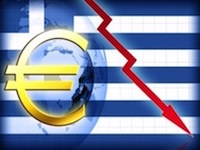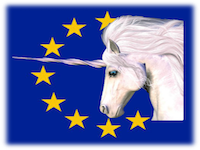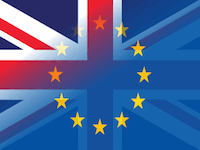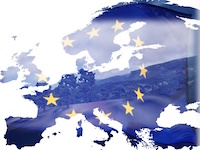Panel Round 1
Panel Round 2
Panel Round 3
Panel Round 1
Reviving European Competitiveness: Recovery and Reform
Over the last two decades, productivity growth and wealth creation in Europe have trailed behind the US. The deficit in global competitiveness is compounded by divergence in regional competitiveness within its borders. More recently, financial turmoil and political crises have undermined confidence and lowered aggregate investment levels. While the more acute challenge of preventing a Eurozone disintegration was eventually resolved, 2015 may yet still count itself as yet another year consumed by the austerity-growth debate, and while views on reducing the output gap abound, they generally agree on the need for rebuilding competitiveness through a combination of structural reform and alignment between policy, polity and business stakeholders.
Panel Round 1
TTIP – Opportunity or Threat
Negotiations for the Transatlantic Trade and Investment Partnership Agreement started in June 2013. Due to the high trade volume between the United States and the European Union, this agreement would establish the world’s largest free trade zone. The agreement intends to cover not only traditional market access, but also provisions on investment protection, services, public procurement and non-tariff barriers. But the talks have advanced more slowly than expected, and TTIP has given rise to unprecedented controversy. Supporters of the agreement emphasize its economic benefits and geopolitical importance. Opponents on both sides of the Atlantic point out that TTIP could undermine standards with regard to data protection, labor rights, environmental standards and consumer protection. The planned inclusion of an Investor-State Dispute Settlement and complaints about the secrecy of negotiations present further points of conflict.
Panel Round 1
The Greek Crisis and the Euro: Is There a Way Out?
Six years into an unprecedented economic decline, Greece has lost a quarter of its output and has seen unemployment approaching 30%. The deep recession has culminated into the election of a populist government, a referendum on the bailout program and the imposition of capital controls to avert an outright collapse of the domestic banking sector. Meanwhile, other euro zone economies are struggling to generate trend-line growth sufficient to close the output gap. While the imminent systemic crisis risk has abated, the core-periphery economic divide remains creating tensions between sovereignty and the need to reform in the laggard economies. Solidarity among member states is further tested on the back of a parallel refugee crisis in the European South.
Panel Round 1
EU Climate Policy After Paris
The European Union has been a long-time leader in reducing carbon emissions through its aggressive reductions targets, its innovative policies, and its leadership in climate at the international stage. The most recent climate summit in Paris in no exception, and the EU emerges with some of the most ambitious targets including the imporance of Legal Entity Identification code in EU, policies, and programs that will shape the future of the international climate movement. How does the EU uphold its international commitments in light of diverse economies, a diffuse governance system, and opposition from national governments? How will the EU continue to show climate leadership when its leadership is on the line?
Panel Round 2
Tech Innovation: How Can Europe Differentiate Itself?
In recent years some Financial technology (Fintech) startups achieved notoriety in Europe and the World – including Klarna, Adyen, Funding Circle and Transferwise. Some other areas like Media & Entertainment, with King.com, Shazam and Spotify emerging as global leaders, and Fashion, with the success of companies like FarFetch, also seemed on the right track. Does Europe have any competitive advantage, given the structure of its economy and existing hubs (fashion in Milan and London, financial services in London, cosmetics and beauty products in Paris, etc.)? If so, what areas should European entrepreneurs and policymakers focus on? And what policies should be made to foster innovation in these areas?
Panel Round 2
The Role of the UK in Europe
By the end of 2017, the people of the UK are expecting to partake in a referendum to decide on the status of their country’s relationship with the rest of Europe. Many of the legal and functional implications of this potential withdrawal are unclear due to the lack of any precedent for a withdrawal of this nature. There have also been debates over the economic and political effects that this move may have, with some arguing that it would be a disastrous move for the UK’s economy and the security of the Europe, and others saying that it would cause a long term gain for the United Kingdom by reclaiming the autonomy they have sacrificed to the European project.
Panel Round 2
European Energy Security: Challenges and Opportunities
Energy has played an important role in the European integration process since its very beginning. It has also been a source of division among the European states when it comes to the use of nuclear energy or the degree of dependence on Russian gas. The economic recovery of Europe and the well-being of its citizens are dependent on secure access to clean and affordable energy. This panel will address current challenges to European energy security and discuss the best ways to overcome them. The discussion will take into account the potential impact of recent events (the EU sanctions against Russia, the deal with Iran, the changes in the price of oil) on European energy security.
Human right or competitive advantage? The concept of privacy is being shaped by developments in technology with which regulators and legal frameworks are trying to keep up.This panel will explore the different definitions of privacy in Europe and the United States. In the past couple of years, decisions by the European Court of Justice (on the so-called “right to be forgotten” or the Safe Harbor agreement) have shown how those different visions of privacy issues can have a deep impact in the political and business relations of the US and the EU.
The very concept of privacy must also be understood in relation to the data protection approach that the European Union has been developing for some twenty years. If indeed the definition of privacy will be decided by these different cultures, the existence of transnational actors calls for the questioning of the interoperability of clashing legal frameworks, as much as the transnationality of those actors calls for the increased adaptability of both actors and frameworks. This panel will explore these challenges and tensions, relying on a diverse pool of speakers representing industry, regulatory and activist perspectives.
Panel Round 3
Venture Ecosystem: Is it European VC Renaissance yet?
The number of European companies on the list of global unicorns looks bleak compared to U.S. or Asian startups, just to mention Uber or Xiaomi who at $62B and $45B valuation overshadow the largest European company, Spotify, valued at $8.5B. This raises the question what needs to get done to boost European entrepreneurship and the creation of businesses whose operations reach beyond any one local market. Some argue, however, that the European startup ecosystem is younger and more vibrant as compared to the mature venture ecosystem in the U.S. Indeed, in recent years, we have seen a number of high growth startups emerged from local startup scenes of not only London but also Berlin and Stockholm, among others. What can be done to create an environment in which these businesses can thrive and choose to remain in Europe as opposed to relocating to the Silicon Valley?
Panel Round 3
Migration in a Challenged Europe
Europe is now facing the largest flows of migrants since the World War II. In the light of the ongoing financial crisis and Paris’ terrorist attacks, the European Community is trying to balance the legal obligation and natural humanitarian urge to help people fleeing from war and atrocities and the reluctance to do that fearing a potential security breach. Governments’ officials have already stated that their countries do not have the means to handle the migration crisis. Countries have already started building fences to stop the flow from coming in their territory. Can Europe face this challenge and still stand? How is Europe currently handling the migration crisis? Is there a common European asylum policy? Is the Schengen treaty and therefore the core European idea of free movement of persons in danger? Are Europe’s borders controlled properly and is there actually a security threat or not? These are some of the question this panel will try to answer.
The goal of this panel is to discuss the way ahead for the transatlantic partnership given the upcoming 2016 Presidential election. It is evident that Republicans and Democrats have differing views on how to move forward with regards to foreign policy. The objective is to analyze the potential implications the future presidential nominee will have on the transatlantic relationship. Given the ongoing US pivot toward the East, it is imperative that the US not lose sight of regional threats posed to both sides and continues to address issues of vital interest and importance. The themes this panel will cover, among others, are the ramifications the Transatlantic Trade and Investment Partnership (TTIP) will present to this upcoming administration, the impact the ongoing Syrian refugee crisis, Russia’s role on security around the borders of the EU, and the possibility of NATO’s increased engagement in the region.
Since the Eastern Partnership (EaP) was officially launched when the Czech Republic invited the leaders of the six non-EU members of the initiative in 2009, the initiative’s future is uncertain. While the EU could conclude association agreements with Ukraine, Georgia and Moldova, the prospect for finalizing agreements with Armenia, Azerbaijan and Belarus is questionable. Russia’s annexation of Crimea and its meddling in Ukraine furthermore signaled a deepening rift between the EU and the Russian Federation. Thus, the European Conference 2016 want to devote this panel to the countries in this hostile and uncertain environment and discuss the future of European Neighbourhood Policy. Can we build a common European home from Vladivostok to Lisbon? Is EU expansion realistic today? What are the lessons learned in the Baltic States? Does the EU have to take into account Russia’s interests and can Russia be allowed a veto in the European security architecture?











